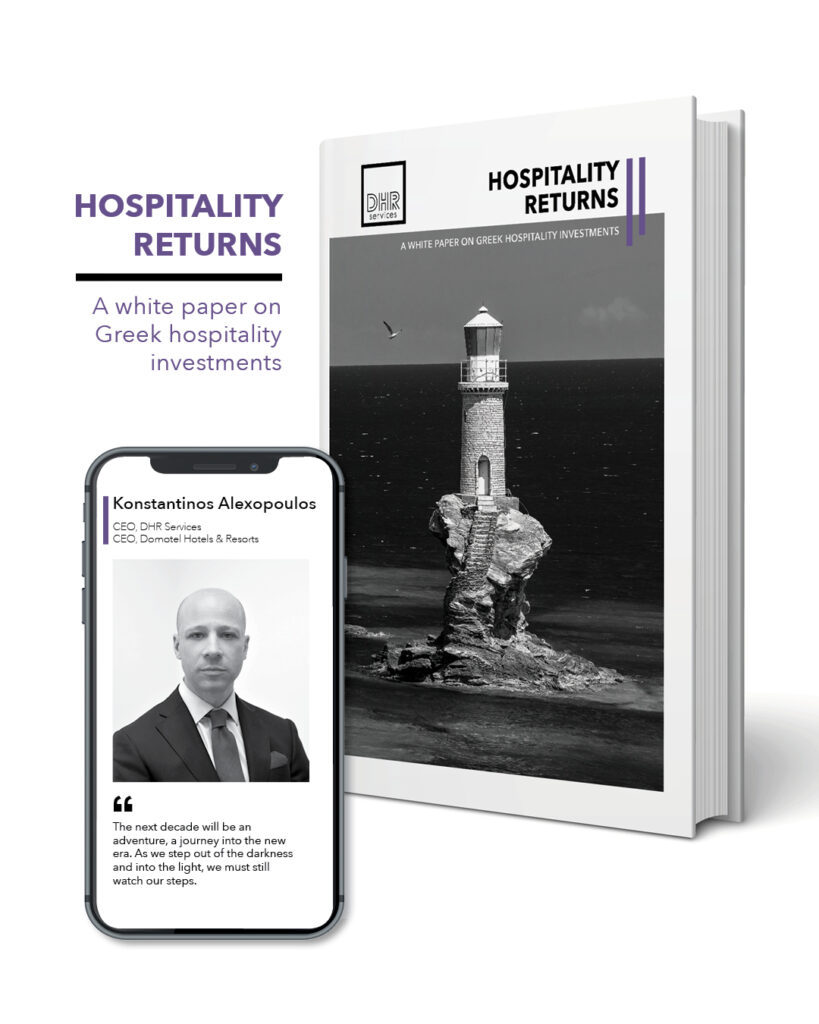

It’s now more than a year since the beginning of Covid-19, a pandemic that has overthrown every social and economic norm we were used to. Following its rapid spread, a shocked world was forced to find new ways, new solutions to get by in an unfamiliar environment. Perhaps when this is all over some of our new habits will remain, bringing with them exciting and previously unforeseen new developments. Or perhaps the only things this challenging time will leave us with are scars. Regardless, the goals, the needs and the drivers remain the same even if the framework is different. Adaptability is, and remains to be, at the core of our evolution.
The start of this new tourism season finds us, or at least should find us, better prepared than the first. On the medical side, our knowledge of Covid-19 places us in a far better position than we were this time last year, when everything about the virus, its function and treatment, was unknown. There are now many vaccines, and the western world is being vaccinated at a rapid rate. Governments and other institutions have adapted their policies to deal with domestic disruptions, sometimes successfully, other times less so. Although the financial loss at both a macro and micro level is colossal, household savings appear to be significantly increased. The psychological fatigue of the population is accompanied by a very strong desire to return to what was previously considered a given, with free social activity and travel as a priority. Evidence from a number of studies, research papers and analyses leads to the conclusion of an expected v-shaped recovery for travel. In China, which preceded the cycle of the pandemic, recovery has already been seen, surpassing even the most optimistic forecasts with a full return to pre-pandemic levels.

The progression of the tourism season of 2021, despite epidemiological data suggesting it appears to be in danger, depends on our choices and the speed of which they are received. In 2020, the lack of a stable framework between feeder countries and destinations, an inability to communicate and adopt a consistent framework between them, and the consequent failure to create reliable operations for the tourism network despite enormous efforts by stakeholders, led to what is now the biggest blow and biggest threat to world tourism: the loss of consumer trust. Only through a stable framework, even if it seems more restrictive than what is deemed necessary, can we achieve the best possible outcome under current health and safety regulations, safely capitalising on an intense desire for holidays. The retrospective success or failure of 2021 will determine the extent of the impact of the next two years on the tourism industry, shaping how its network will function for the next five to ten years.
At DHR Services, we have a history in the hospitality industry that spans back to 1964. We hold the experience of having been present in all the phases of our country’s tourism sector over the past six decades. We collect data from hotels scattered throughout the country, liaising with our clients and partners, and providing a trustworthy, safe and efficient service for the design and implementation of their investments. We constantly look out for trends in the world tourism ecosystem, collecting data and evaluating dynamics. Our cooperation with institutional investors abroad and upscale hotel franchisors strengthens our vision with a global outlook and direct access to the starting point of developments. However, in our current times, experience, dedication and structured research are not enough. Now is the time to open up even more. Now is the time to listen very carefully to the community.
The white paper serves to address these aforementioned topics, looking forward to the future while opening up productive dialogues in the present. It is time to evaluate this new era, gathering the views and predictions of top figures in the tourism and investment sectors, and exploring how these two sectors will coexist with the shared goal of development and growth. There were five key issues set for evaluation: visitor intent, distribution, market disruptions, long-term perspectives and new opportunities. For answers, we turned to leading institutional figures and entrepreneurs in tourism, international hotel executives, Greek and international financial institutions, leaders of the travel industries in both Greece and abroad, and also technical participants of a classic output. In addition, we have commissioned Metron Analysis to conduct quantitative research on top executives in the travel industry serving to record the effects of the pandemic, travelers’ reactions and sentiments, and most importantly, their intentions for the future.

Greece has potential, and Greece is ready. New policies are steering the nation in the right direction, investment appetite is huge and apparent, and there are strong prospects for improvement and development even greater than those seen in 2019. The next decade will be an adventure, a journey into the new era. As we step out of the darkness and into the light, we must still watch our steps. We need a guide, we need a safe and sustainable path to walk on and we need teams and partnerships.
Get our white paper free!
Send download link to:















